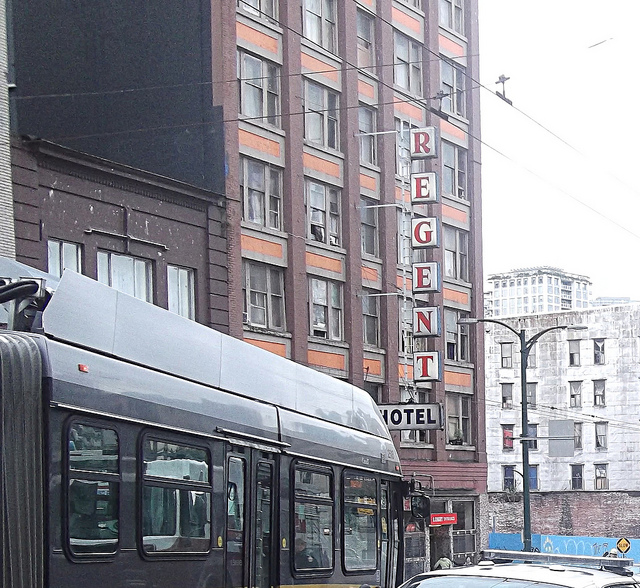
Vancouver has launched itself into new territory in dealing with what its deputy manager calls a “frustrating” situation involving two hotels that have been home to some of the city’s most vulnerable people.
After failed attempts to compel the owners of two decaying hotels in the Downtown Eastside to make improvements that would bring them up to code, the city announced Monday it had filed a notice of expropriation for the Balmoral and Regent hotels.
The hotels were previously closed because of structural and safety concerns, the city said in a news release. More than 300 of the city’s lowest income tenants needed to be relocated when they were shut down.
Deputy city manager Paul Mochrie said it’s the first time the city has pursued expropriation with the purpose of providing public housing.
“What we’ve got now is two buildings that are empty with no conceivable prospect that they would be restored to a point where they can be used as housing. We’ve got a city with a housing crisis,” he said in an interview.
“So now city council has authorized the next step, which is a pretty extraordinary one, to pursue expropriation off those two properties.”
It’s also a process that the city can’t find has been tried elsewhere, he said.
“We certainly have been looking at how other jurisdictions manage their problem buildings, but in this case, this action was taken not necessarily based on what other people have done or other cities have done, but really where our council felt it needs to go with respect to securing property for very desperately needed housing,” Mochrie said.
No one from the Sahota family, which owns the two properties, was immediately available for comment and the family’s lawyer, Michael Katzalay, said he hadn’t had an opportunity to discuss the matter with them.
The Balmoral and Regent hotels are known as single-resident occupancy buildings, or SROs. It’s a model of housing that sprang up in Vancouver as transient housing for loggers and fishermen, but has since become what Mochrie said is an important stock of low-income housing.
The city said it made an offer to the owners to purchase both hotels for a value based on independent appraisals but the offer was rejected, and the owners now have 30 days to ask for an inquiry before council considers the expropriation.
The city says it closed the buildings because the walls, ceilings, floors and plumbing were not maintained to adequate standards.
“It is extremely frustrating,” Mochrie said.
“They’ve now let these buildings deteriorate to the point that they’re now sitting there empty with no conceivable plan to do anything with them.”
Mochrie said the city is also facing challenges with other privately owned SROs, as landlords either aren’t maintaining the buildings or are finding it necessary to increase rents to cover their increasing costs.
“These two are kind of worst case examples, but there’s a much bigger kind of challenge we have, just given our reliance on these privately owned SROs as housing for low-income and in many cases very vulnerable tenants,” he said.
Bringing the Balmoral and Regent hotels into public ownership could contribute to the city’s long-standing goal to replace SROs with self-contained social housing, the city said in the release. Over the next 10 years, the city wants to replace 50 per cent of the remaining SROs, totalling about 2,000 rooms, with new social housing.
Council has directed staff to explore partnering with the provincial and federal governments on the plan.